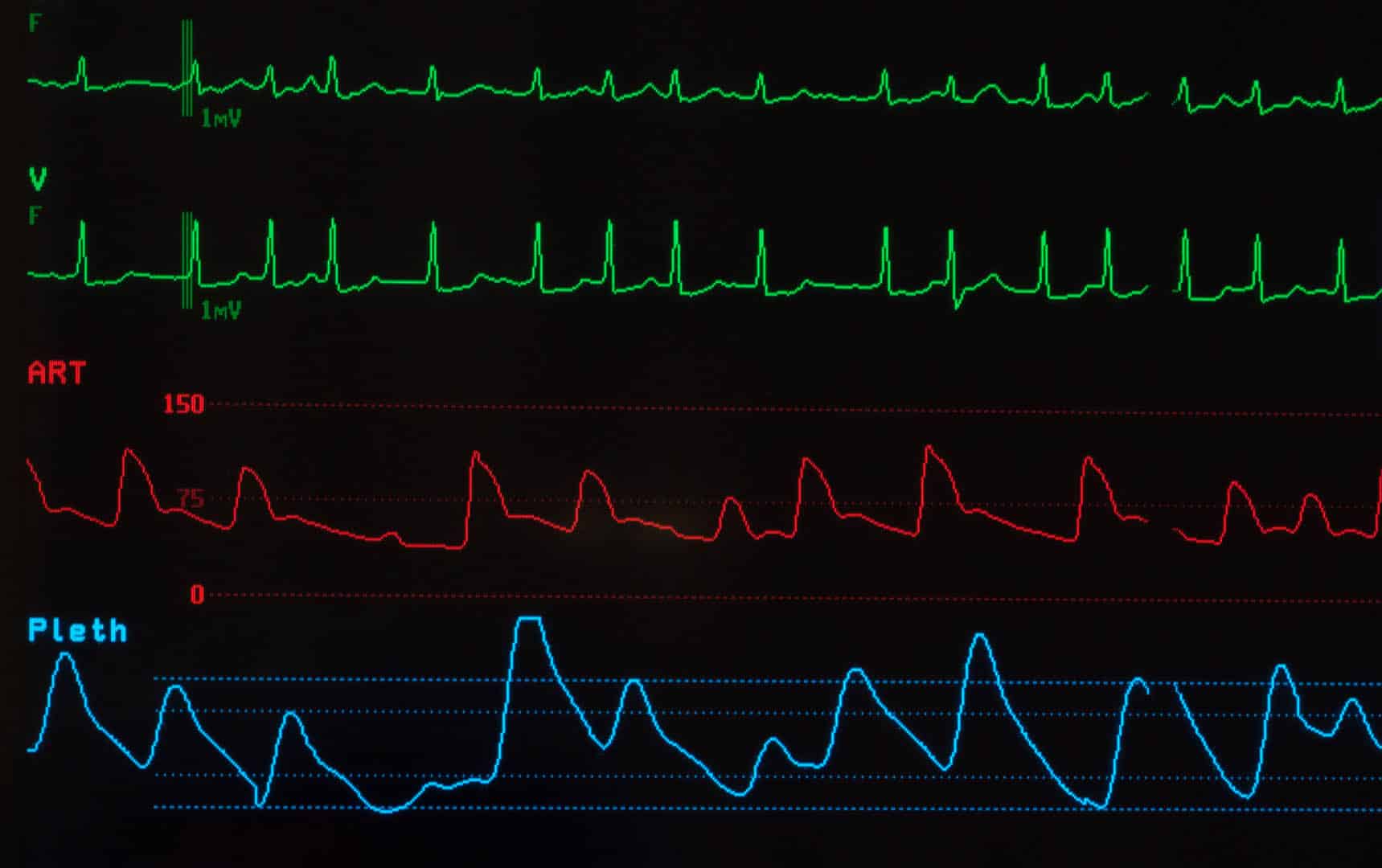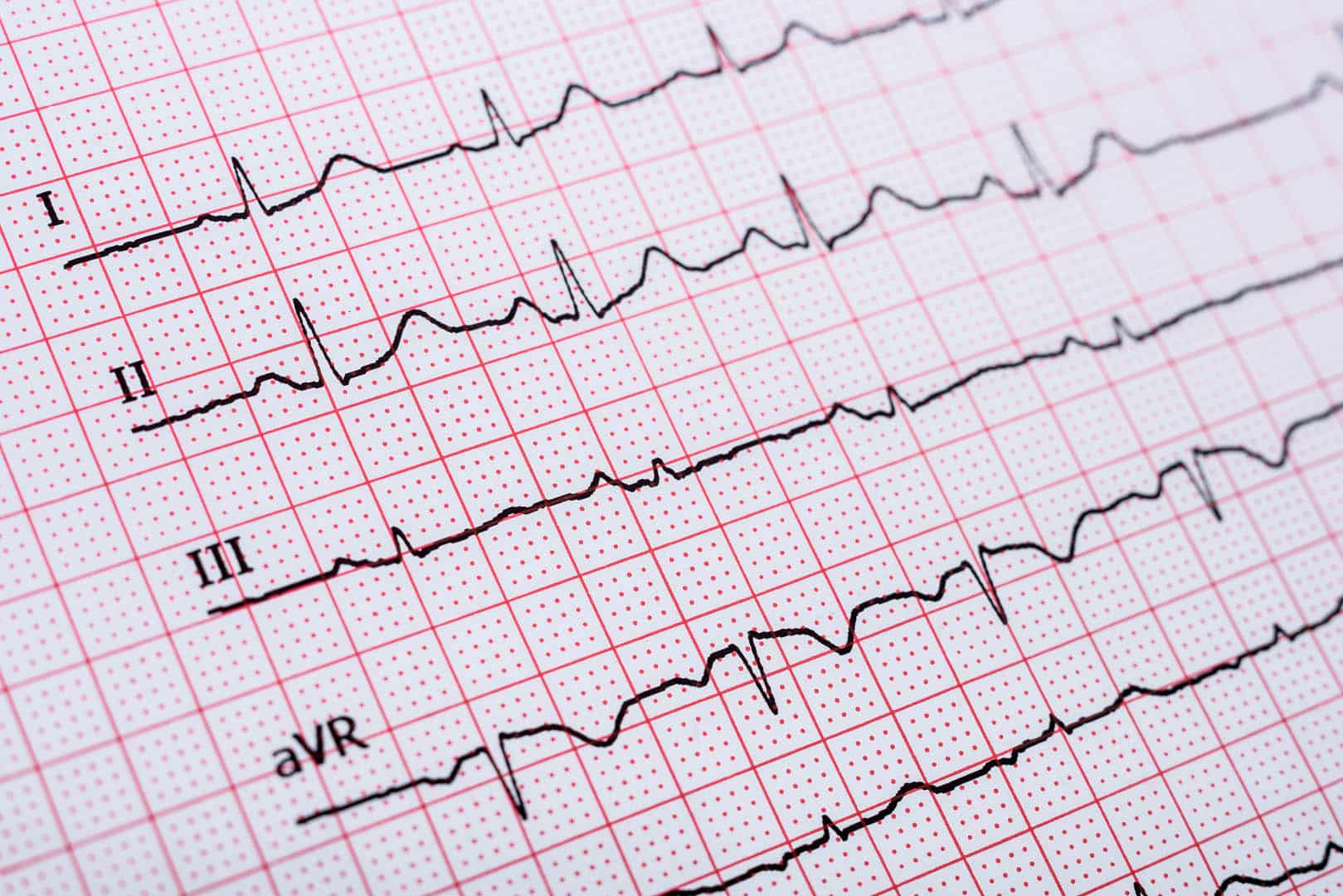Heart Rhythm Test
A disturbance of the electrical impulse controlling your heart beat (heart arrhythmia) is a common reason for seeking help from a cardiologist. A range of testing options are available to detect heart rhythm and heart rate problems, which you will be able to discuss with Dr Jordan at the time of your consultation.
General Introduction
Symptoms from your heart beat may be due to an abnormal rhythm (arrhythmia) or due to a problem with how fast your heart is beating (heart rate).
Abnormal heart rhythms can cause palpitations (an awareness of your own heart beat), fatigue, breathlessness, collapse/blackout, chest pain, or have no symptoms at all. Although most arrhythmias are harmless, tests and a correct diagnosis and personalised treatment plan is essential to provide relief from symptoms. However, some heart rhythm conditions, such as atrial fibrillation, may require treatment in order to safeguard your long-term health, in particular to prevent stroke.
The Process at our Medical Centre
Although a snapshot of your heart rhythm is achieved with a 12-lead ECG, an understanding of your heart rhythm over a longer period of time is often needed to achieve a heart rhythm diagnosis. To achieve this, continuous monitoring is accomplished with an ambulatory heart rhythm monitor, with the length of time of monitoring required being determined by your symptoms.
For those with a suspected heart rate condition or for those whose symptoms occur very often, 24 hours of continuous monitoring is often sufficient. However, if your symptoms are infrequent, up to 7 days of continuous monitoring can be arranged. Should this not provide a diagnosis, an intermittently used monitor can be provided, which allows you to make your own recordings linked to your smartphone.
Who Needs a Heart Rhythm Test?
A test of your heart rhythm will be needed if your symptoms are suggestive of a heart rhythm disorder. This is especially relevant for people whose symptoms are intermittent in nature.
Preparing for your Examination
Before you arrive at the hospital for your test, we ask that you do not use moisturiser on your chest, to enable better contact with the ECG stickers, which connect to the ECG recording device.
Once you arrive at the hospital, your monitor will be fitted by a cardiac specialist physiologist and checked to ensure that it is working correctly. After leaving the hospital, it is important that you continue your usual activities so that Dr Jordan can gain a complete understanding of your heart rhythm during a normal day.
After you have completed your prescribed duration of ECG monitoring, you will be invited to return to the hospital for the device to be removed and analysed.
In-depth Results and Treatment Services
Once your heart rhythm monitor has been analysed, and the final checks are in place, a further appointment will be organised with your consultant, Dr Jordan, to discuss the results.
Should the results of your service determine your heart is beating quickly at the time of your symptoms, lifestyle treatment, medications or a cardiac ablation (invasive treatment involving your heart) will be discussed with you. For those with slow heart rhythms, a pacemaker may be recommended, which involves inserting a matchbox-sized device under the skin of your chest wall and pacing leads into your heart, under local anaesthetic. However, with an abnormal heart rhythm, there are almost always several different options to choose from – Dr Jordan will guide you through a bespoke heart rhythm program for your particular circumstances.
Why book a private heart test appointment?
Choosing to undergo a private heart rhythm test allows you greater flexibility in determining your appointment date and time. There are no waiting lists associated with our services. Through the private sector, your results will be processed more quickly, allowing Dr Jordan to conclude a diagnosis and treatment plan to provide relief from your symptoms and reassurance as soon as possible. These can also be performed alongside heart health and blood tests if you are seeking a more thorough analysis.
Frequently Asked Questions
How long does a heart screening test to take to determine the rhythm?
The length of your heart rhythm test is usually dictated by how often you suffer from symptoms, which determines the risk factors we must account for. For continuous recordings, between 24-hours and 7-days is usually selected, depending on your health history and level of care required.
How does a doctor check for heart rhythm?
Dr Jordan can check your heart rhythm using a one-off ECG, with continuous ECG monitoring (over 24-hour to 7-days) or with intermittent recordings via a KardiaMobile device. In limited circumstances, a small implantable heart rhythm monitor can be used, especially if your symptoms occur very infrequently.
Is a heart rhythm assessment painful?
Heart rhythm tests are not painful.
Is irregular heart rhythm serious?
Frequently, an irregular heart rhythm can be due to extra or skipped beats (ectopics) but can be the result of other heart rhythm problems requiring treatment, such as atrial fibrillation.
Where is your heart clinic located in Dorset?
We are based at Poole Hospital, Longfleet Road, Poole, Dorset, BH15 2JB. Private patients can be seen at Nuffield Health Bournemouth, BMI The Harbour Hospital.
DORSET SELF-FUNDING CONSULTATION TARIFFS
Initial appointment: £220 | Follow-up appointment: £150
Or Contact Dr Jordan’s PA directly: 01202 096996


